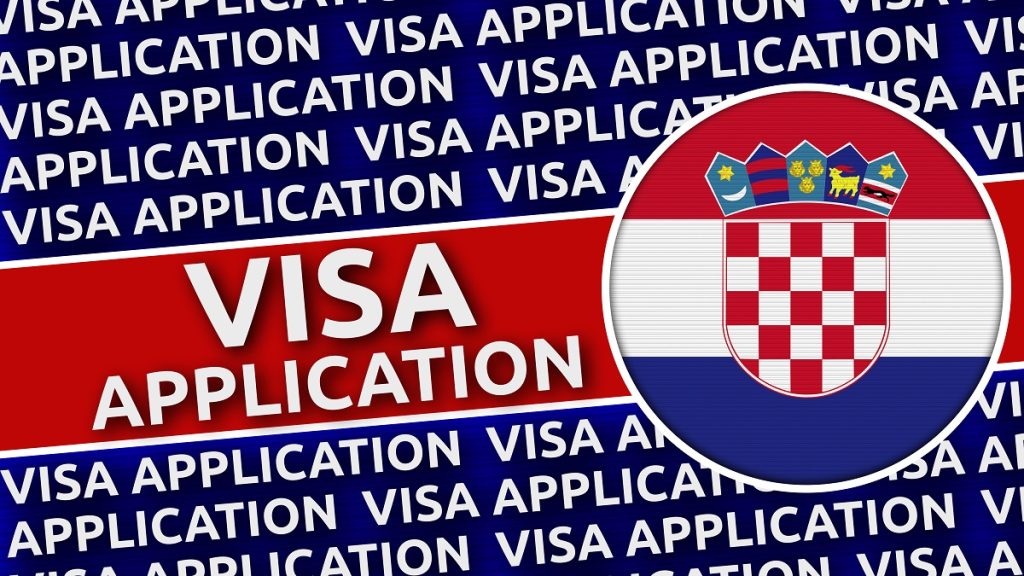Croatia is a popular location for digital nomads due to its beautiful beaches and many historic sites. With a low cost of living, reliable internet, and good public transit, Croatia is welcoming to remote workers.
Croatia is one of the top-rated digital nomad destinations. The mild Mediterranean climate paired with sunny beaches, friendly locals, and no double taxation might make the country a digital nomad paradise for expat workers.
Is Croatia a safe country? Does it have a digital nomad visa? What does the Croatia digital nomad visa application entail? How long can you stay in the country once your application is approved?
Table of Contents
Why Is Croatia A Popular Destination For Digital Nomads?
Digital nomads love staying in the Republic of Croatia for several reasons:
- Affordability. According to Nomad List, the cost of living per month in Zagreb, the country’s capital city, is about $2,700 per month. Zadar, Osijek, and Rijeka are even cheaper.

- Safety. With a Global Peace Index score of 1.44, Croatia was the 15th of 163 countries in 2022.
- Tourist attractions. Besides beautiful scenic villages and beaches, there are national parks and ancient Roman buildings such as Diocletian’s Palace and the Roman Amphitheater. Many Game of Thrones lovers flock to Dubrovnik.

- Language and friendliness. There is no language barrier or need to learn a complex local language — most Croatians speak English and are considered a nation friendly to foreigners.
- Public transportation. The country has an excellent, well-connected bus and ferry network. Tickets are cheap, too.
- Climate. Like other countries in the Mediterranean Basin (France, Portugal, Italy, Spain, Greece, Malta, Cyprus), the area has hot, dry summers and humid, cool winters, and a generally hilly landscape which makes for year-round outdoor adventures.

Does The Country Have A Croatia Digital Nomad Visa?
Croatia has a Digital Nomad Residence Permit, not a visa created specifically for digital nomads. Third-country nationals (non-EU/EEA/Swiss citizens) who work via communication technology are eligible to apply for a temporary stay and bring their close family members (a spouse/partner and children). Its version of a digital nomad visa developed during the pandemic is the same as a 12-month Croatian residence permit.
The permit applies to remote workers working for foreign employers, freelancers, business owners, and entrepreneurs.

How Do I Get A Croatian Digital Nomad Visa?
There are two ways of applying for Croatian temporary residence:
- Online via the official Croatian Ministry of Interior’s website
- In person at the Croatian embassy, consulate, or the local police station or headquarters close to your temporary address in Croatia.
US travelers do not need a visa to enter Croatia and are allowed to stay for 90 days within 180 consecutive days. Keep in mind that you must register a temporary residence address within three days of arrival at a local police station. Once you have obtained an address, you can begin the in-person temporary residence application process.
Administrative fees depend on how you apply. Online applicants pay:
- The temporary stay fee of 46,45 EUR (about $50)
- A biometric residence permit fee of 31,85 EUR (around $34)
- A biometric residence permit issuance fee of 9,29 EUR (about $10)
If you apply at a police station, you pay the same fees when you obtain your residence.
In-person applicants at the embassy or consulate pay the following when applying:
- 55,74 EUR (about $60) for granting a temporary stay
- 93,00 EUR (approximately $100) for the long-term type D visa or 41,14 EUR (about $44) for the biometric residence card
You can obtain a temporary residence permit within three to four weeks. It’s valid for up to one year, non-extendable, and you can reapply after six months of its expiration date.

What Are The Requirements For A Digital Nomad Visa?
The Digital Nomad Residence Permit has the following salary requirements:
- The minimum amount of 2.5 average monthly net salaries paid for the previous year. The Croatian Bureau of Statistics regularly updates the data, and the average monthly net earnings for January 2023 were 8,274.93 Croatian Kunas (HRK) or1,094 EUR (about $1,179).
- Alternatively, a minimum of 230,603.34 Croatian Kunas (HRK) or 30,471.72 EUR (approximately $32,856) in your bank account that you can spend over the course of your stay.
If you meet those conditions, you’ll also need to submit the required documents listed below:
- Completed application form
- Copy of a valid passport or travel document
- Proof of travel or private health insurance
- Proof of purpose (a remote work employment contract, official letter, statement, or copy of the registration of your own company if you are self-employed)
- Regular monthly income proof in the form of bank statements or payslips
- Clean criminal record (a federal background check for Americans)
- Evidence of address of stay or intended stay or temporary residence address in Croatia
Can You Visit Other European Countries With A Croatian Visa?
The Croatian Digital Nomad Residence Permit applies only to Croatia, so you cannot use it to travel throughout Europe. However, Croatia is a Schengen Area country, so US citizens do not need a tourist visa to visit the whole area. The 90-day limit applies to your total stay in the Schengen Zone, regardless of which countries you went to.
Do Digital Nomads Pay Tax In Croatia?
Croatia has a Double Taxation Avoidance Treaty with the US, so digital nomads only need to pay income taxes to their home countries. The treaty also regulates the pension rules of both countries, which is another benefit for remote workers looking to stay in Croatia.


